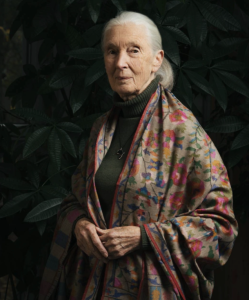TikTok manipulates skincare industry

Photo Courtesy: Unsplash
January 27, 2023
TikTok has managed to alter the medically-proven realities of the beauty industry through skincare influencers who feed countless detrimental trends to millions of unsuspecting viewers.
Credibility and fact-checks, unfortunately, seem to lose relevance in the presence of “aesthetic” videos and fun background music. The social media app has single-handedly made an unprecedented impact on teenagers’ views of skincare.
Although at-home trends like homemade chemical peels or acne treatments are cheaper to produce, their effects are far more costly in money and health than medical advice from a dermatologist.
According to New York Times, one popular video demonstrated how to make faux freckles with a sewing needle and ink. This “hack” left a woman with an infected face, temporary loss of vision in one eye, and permanent scarring.
There are also harmless trends such as the gua sha and “slugging,” or the use of petroleum jelly in place of moisturizer. These tips claim to make drastic differences when in reality, they more often make minimal impacts, or in truth, they merely act as a placebo.
I myself have fallen into the pervasive trap of social media skincare trends. For three years, I used a Cetaphil cleanser and moisturizer with fairly clear skin, and yet two years ago I decided I needed to try CeraVe, which seemed to be on everyone’s “For You” page. In a couple of months, this brought new breakouts along with irregularly dry skin.
The important thing to keep in mind is that everyone’s skin is different and one product isn’t the miracle solution for millions of people. Popularity on TikTok does not inherently make a product better or worse; it’s the rapid spread of recommendations that manages to negate scientific and medical advice.
Doctors across the country were alarmed by the rapid rise in these trends, which began during Covid when people used their endless free time to scroll through skincare videos and ship new products straight to their front door.
According to Washingtonian, “I always tell patients this stuff looks easy on TikTok because it’s trendy, it looks cool, there’s music in the background,” Ashburn plastic surgeon Maryam Nazemzadeh said. “But [a lot of this] is all medical-grade stuff. I mean, this is very serious stuff that requires sterile techniques [and] knowledge of anatomy.”
Due to the rapid creation of content and development of trends, caution is essential. The formation of a new skincare routine based on what the most popular influencer recommends is not inherently bad. When coupled with thorough research on skin types and reliable reviews, Tiktok could very well be the source for someone’s perfected skincare routine.
The persistent issue, however, is the blurred line between licensed professionals and monetized influencers who promote products; both are blindly followed by viewers to who they provide skincare advice.
The impact of recommendations from TikTok can be either positive or negative; it all depends on whether it’s followed without question or taken with a grain of salt.










